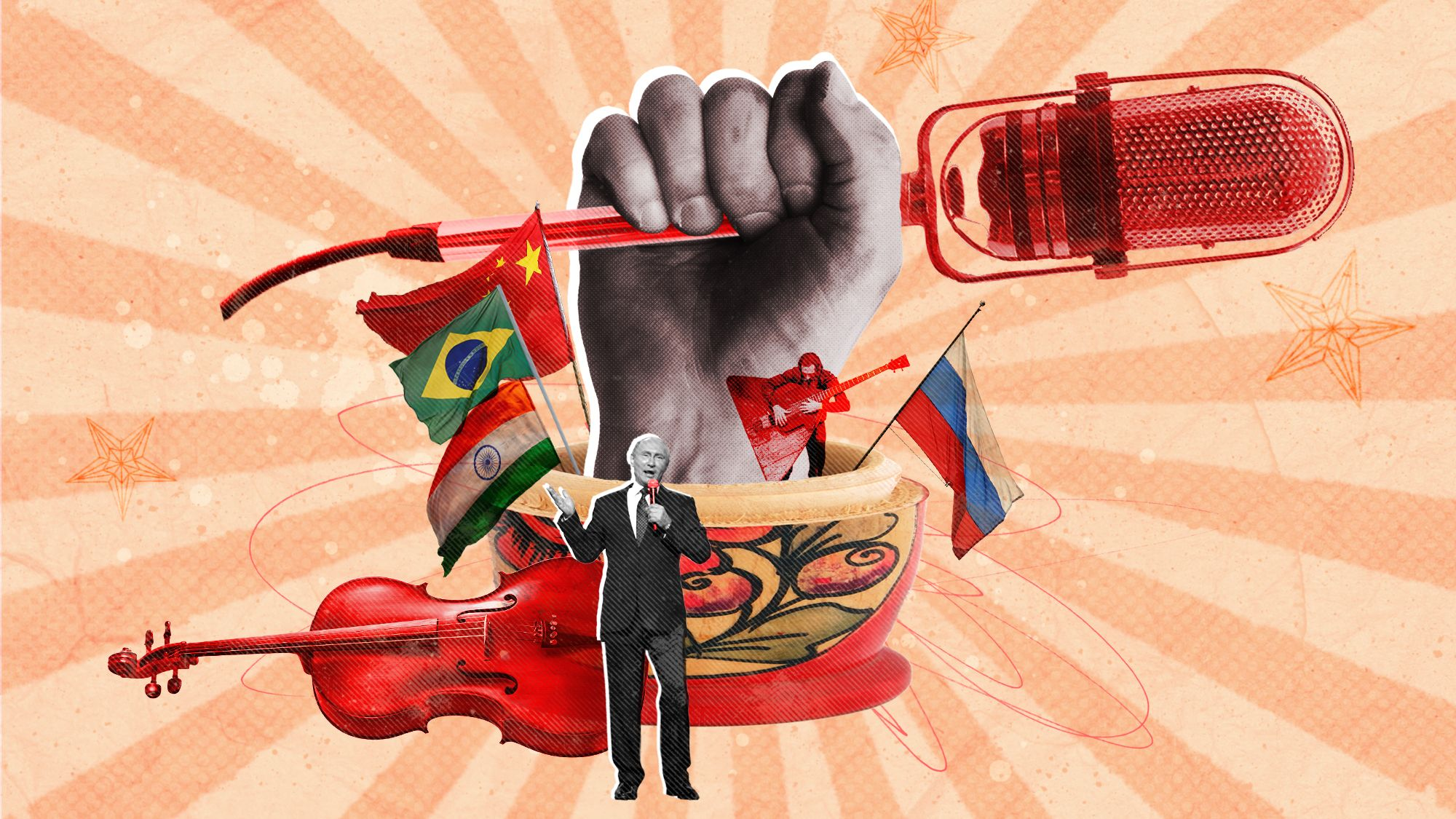Intervision: Putin's Eurovision rival
Russian president wants to revive contest as 'anti-woke' challenge to the annual Western singathon

A free daily email with the biggest news stories of the day – and the best features from TheWeek.com
You are now subscribed
Your newsletter sign-up was successful
Vladimir Putin has ordered a reboot of the Soviet-era alternative to the Eurovision Song Contest, with more than a dozen countries said to be signed up.
The "despot" wants his "apparatchiks" to restore the "defunct" Intervideniye song contest as an "anti-woke rival to the sequin-laden and LGBT-friendly original", said The Telegraph.
Political beginnings
The Intervideniye contest (Intervision in English) began in Czechoslovakia in 1965 and ran for three years until it was taken off air following the Soviet-led invasion of the country in 1968. It was later revived by Polish television, which made it part of the existing Sopot International Song Festival.
The Week
Escape your echo chamber. Get the facts behind the news, plus analysis from multiple perspectives.

Sign up for The Week's Free Newsletters
From our morning news briefing to a weekly Good News Newsletter, get the best of The Week delivered directly to your inbox.
From our morning news briefing to a weekly Good News Newsletter, get the best of The Week delivered directly to your inbox.
The format was similar to Eurovision: countries from the Eastern Bloc linked up through the Intervision television network and each sent a performer, where a jury chose the winner after watching the contestants.
Despite its "clear political undertones", the contest had some connections with the West, said Euronews. European nations like the Netherlands and Spain "occasionally sent entries" and a "surprising twist" saw neutral Finland win the final Intervision contest in 1980.
Return under Putin's stern gaze
Russia then began to take part in Eurovision. "Throughout the 2000s," said The Guardian, the contest became one of Russia's "most highly anticipated events", with Moscow "frequently sending some of its biggest stars" to take part.
But over recent years Russia's relationship with Eurovision collapsed. In 2021, Manizha became the last Russian act to take part before the nation was thrown out after it invaded Ukraine. The following year Ukraine won the contest for the third time.
A free daily email with the biggest news stories of the day – and the best features from TheWeek.com
After Switzerland's pink-clad non-binary singer Nemo won Eurovision in 2024, the Russian government reacted angrily, saying the contest had "surpassed any orgy, revelry or ritual sacrilege" and become another "funeral" for Western Europe.
Putin signed a decree on Monday ordering officials to revive the Intervision song contest in Moscow this autumn, with the aim of "developing international cultural and humanitarian cooperation".
It will return under the "isolated" Putin's "stern gaze", said The Telegraph, and it's expected to serve up "staid patriotic fare". The contest will be "supervised by the Kremlin", said Politico, with Deputy Prime Minister Dmitry Chernyshenko appointed chair of the organising committee and domestic policy chief Sergei Kiriyenko the chair of the supervisory board that will be "certifying the results".
Moscow claims "almost 20" nations have agreed to take part, said The Telegraph, including Brazil, Cuba, India and China, but a government spokesperson previously said more than 25 countries had expressed an interest.
Chas Newkey-Burden has been part of The Week Digital team for more than a decade and a journalist for 25 years, starting out on the irreverent football weekly 90 Minutes, before moving to lifestyle magazines Loaded and Attitude. He was a columnist for The Big Issue and landed a world exclusive with David Beckham that became the weekly magazine’s bestselling issue. He now writes regularly for The Guardian, The Telegraph, The Independent, Metro, FourFourTwo and the i new site. He is also the author of a number of non-fiction books.
-
 How the FCC’s ‘equal time’ rule works
How the FCC’s ‘equal time’ rule worksIn the Spotlight The law is at the heart of the Colbert-CBS conflict
-
 What is the endgame in the DHS shutdown?
What is the endgame in the DHS shutdown?Today’s Big Question Democrats want to rein in ICE’s immigration crackdown
-
 ‘Poor time management isn’t just an inconvenience’
‘Poor time management isn’t just an inconvenience’Instant Opinion Opinion, comment and editorials of the day